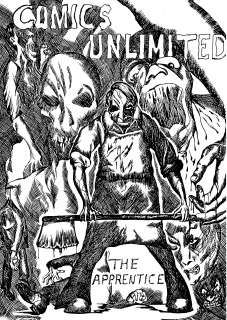
In 1977 whilst on my Art Foundation Course I met Stephen Baskerville who was an avid comics fan and who encouraged me to create my first horror story which was published in a fanzine.
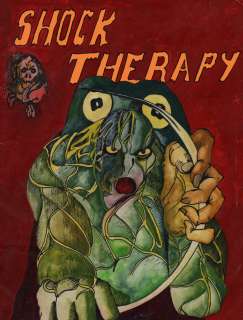
That same year the first issue of Shock Therapy was created as a hand drawn comic and was my homage to Warren publications’ Creepy and Eeerie magazines.
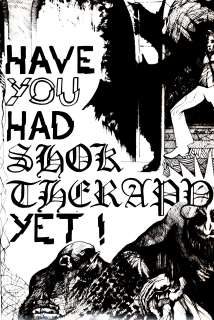
The first poster for Shok Therapy was created in 1979 during my final year at Stourbridge on my Fine Art Degree. 3 issues were published in Halifax and were credited in the 2000 publication “Nasty Tales – A History Of The British Underground Comic Scene”
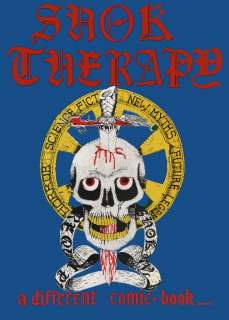
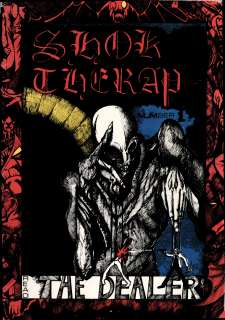
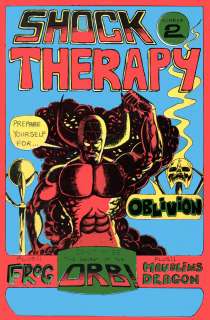
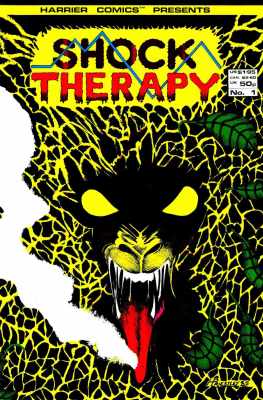
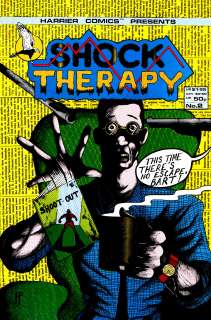
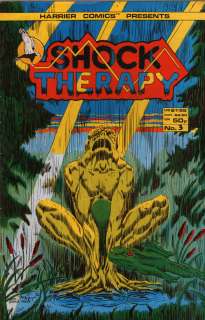
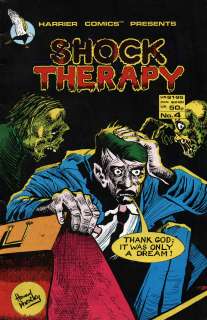
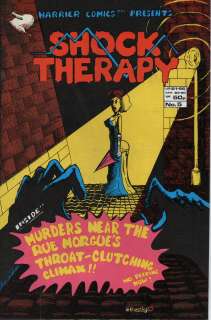
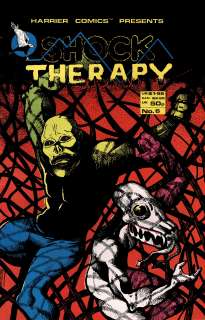
In 1984 Harrier Comics produced a 6 issue run of Shock Therapy and during its run I was responsible for giving work to Stephen Baskerville and Andy Lanning. Two artists who went on to work for both Marvel and DC Comics.
“This is the first issue straight from the mind of Howard Priestley. Inspired as a kid by early Creepy and Eerie issues, Howard’s twisted inspirations made it to paper. Both scary and fun these stories keep our readers on the edge, dodging from creatures in the dark even after reading… So keep the light on, you never know what goes “bump” in the night.
Print copies of these early Harrier comics are hard to find now, but CE Publishing is proud to bring them back in digital format. And the more you support this work, the more we’ll be able to offer you over the coming months, including unpublished work from the Harrier archives.”
Drive in Comics
In 2011 a self-published edition was published
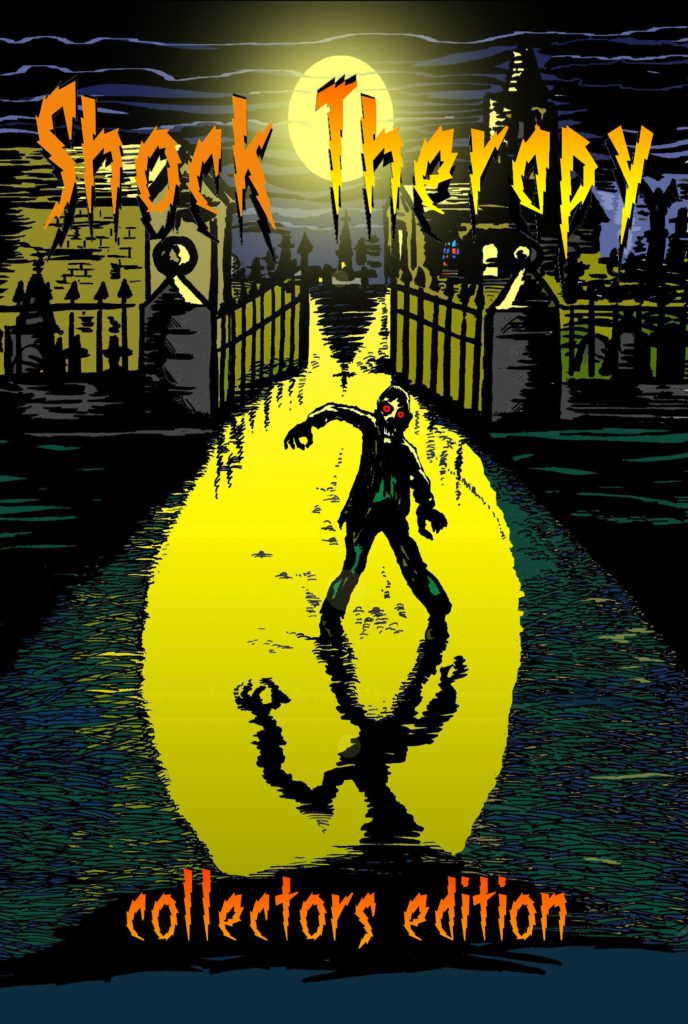
Illustrator and comics artist Howard Priestley has released a limited edition collection of horror tales called Shock Therapy, available from him direct and some select northern comic shops. Howard told us last year that he started getting the urge to do another volume of short horror stories, and this one’s got some great tales, especially a grisly opening tale set in a World War Two concentration camp.
“I just wanted to get a new issue out and get the money back,” Howard tells us. “I’m not a desperate young wannabe anymore (or a desperate old has been, hopefully!).”
John Freeman, DownTheTubes, 20111
